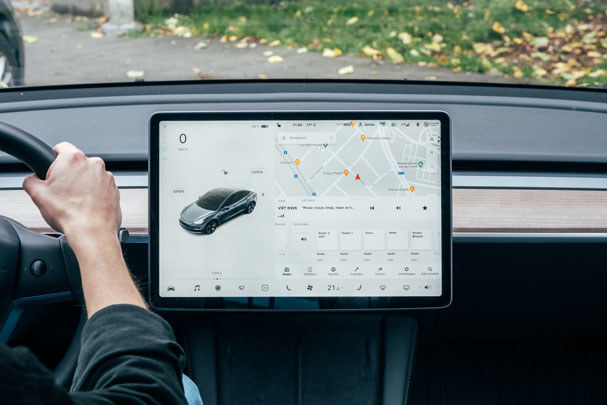
Nationwide Vehicle Contracts analyses the impact of privacy concerns on connected car technology.
Data protection this, online privacy that. The battle between tech companies and privacy is a never-ending saga, and the recent increase in connected car technology is dragging the automotive industry further into the mix.
It’s estimated that by 2025, there will be over 400 million connected vehicles on the road, all of which will raise privacy concerns (source: Otonomo). These cars will be able to download updates, send data to other vehicles, store personal information, and connect with other devices, such as smart traffic lights and cameras.
So what is being done to protect this data, and what impact is this having on the automotive industry? In this blog, car leasing experts Nationwide Vehicle Contracts analyse the impact of privacy concerns on connected car technology.
What are the concerns?
As always, with data protection, customers don’t want their data being used and sold to other companies who are looking to make a commercial gain. After all, that person has generated the data, so it’s only right to be protected from anyone accessing it.
In relation to connected car technology, there’s a range of data that can be collected:
- Technical vehicle data, such as information about the engine, oil level, and emissions.
- Driver behaviour data. This could come from interior cameras and sensors that scan the car for safety purposes, the infotainment settings, or voice control.
- Location data about where the car is or where it’s travelling to.
- Surrounding vehicle data gathered by the range of cameras and sensors on the car. Information can be on topics such as the road gradient, traffic signs, the speed of other cars, and communications between autonomous vehicles.
Essentially, this is a gold mine of data if it falls into the wrong hands. Many companies could benefit from this information, such as tech, tourism, and behaviour companies.
Customers only want their personal data used to improve their driving experience, not to enhance a random company’s commercial gain.
What needs to be done?
The opportunities to use connected car technology to advance the consumers driving experience is massive. A lot of new cars nowadays have some sort of self-driving technology, and in the future when cars can drive themselves permanently, it will be connected vehicle data that makes this happen.
However, for all of our personal data to be used correctly, manufacturers need to:
- Ensure data is stored in a secure system.
- Restructure data to meet customer privacy expectations and preferences.
- Reshape and analyse data to ensure it’s beneficial and actionable.
- Introduce a regulated policy understood by all in the industry and the customer.
What's been done so far?
In response to connected technology in every industry, regulators introduced huge privacy laws such as the General Data Protection Regulation (GDPR). GDPR protects the personal data of people worldwide and limits organisations targeting and collecting personal data.
To keep customers safe, GDPR addresses ‘pseudonymous data’, which allows manufacturers to collect data as long as they replace key identifiable features with pseudonyms.
The impact on the automotive industry
The real impact of privacy concerns on the automotive industry is yet to be seen. Connected car technology is a relatively new phenomenon; thus, lawmakers haven’t yet decided on any set-in-stone regulations. The issue has been swept under the jurisdiction of the GDPR.
In the next ten years, the issue will dramatically increase as manufacturers ramp up their self-driving technology. We will see more legal red tape rolled out across the industry, and manufacturers must abide by this to the best of their ability, regardless of whether it hinders connected car technology.
Summary
In short, data protection concerning connected car technology is a relatively new issue. Unlike companies that previously sold data for solely commercial gain, connected car technology can 100% be used to benefit both the driver and the manufacturer.
At the minute, it’s a bit of a blurred line trying to find the right balance between improving on-the-road experiences and protecting personal data.
What do you think of connected car technologies? Nationwide Vehicle Contracts produce a range of blogs on various topics, such as The Best Cars for Tech-Savvy Drivers and The Use of Virtual and Augmented Reality in Car Design.

